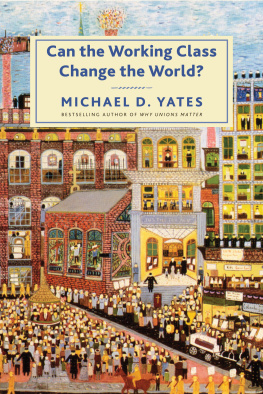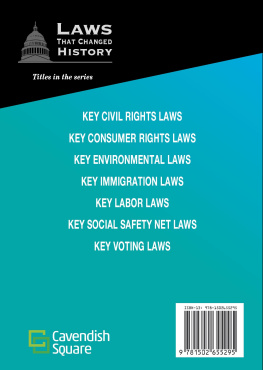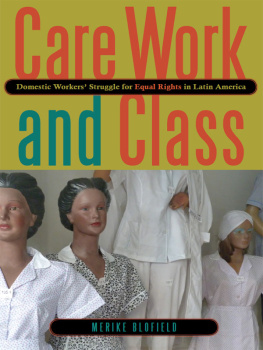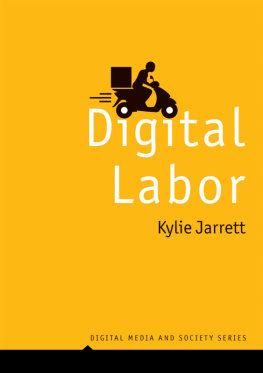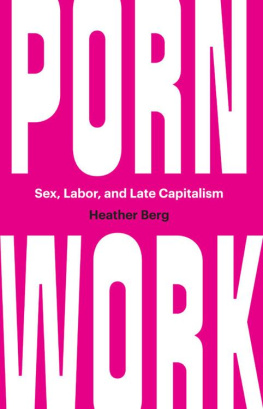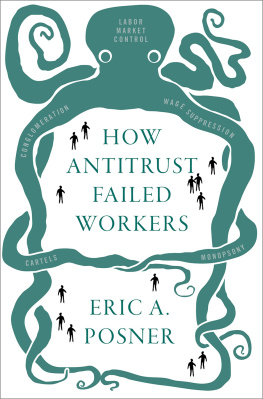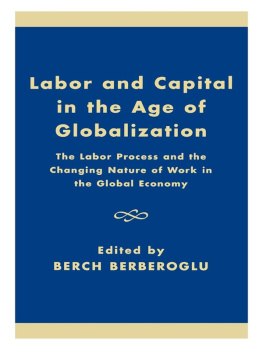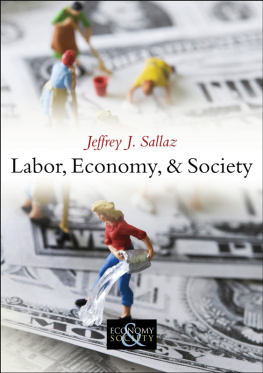WORK WORK WORK
Labor, Alienation, and Class Struggle

MICHAEL D. YATES

MONTHLY REVIEW PRESS
New York
Copyright 2022 by Michael D. Yates
All Rights Reserved
Library of Congress Cataloging-in-Publication Data available from the publisher
ISBN 978-1-58367-965-4 paper
ISBN 978-1-58367-966-1 cloth
Typeset in Minion Pro and DIN condensed
MONTHLY REVIEW PRESS, NEW YORK
monthlyreview.org
54321
Contents
As always, with all my love, to Karen Korenoski, the best companion I ever could have asked for.
Acknowledgments
This book owes its existence to my comrades at Monthly Review. Through them, I have become a member of a global community of radical intellectuals and activists. I began reading the magazine in 1969, and I submitted my first article to the editors in 1972. It was rejected, but Paul Sweezy sent me a handwritten and sympathetic letter explaining why it was declined. His response encouraged me to try again, and in 1975, a book review was accepted. In the early 1980s, I invited Paul and co-editor Harry Magdoff to visit the college where I taught and participate in a colloquium that we were organizing to discuss the political economy of the nation and the industrial heartland. They both came, and we became friends. Since that time, my connection to the magazine and Monthly Review Press has deepened, which has allowed me to publish and become part of something much larger than myself, an opportunity I almost certainly would never have gotten otherwise.
I have the deepest gratitude to everyone who has ever been an integral part of this revolutionary enterprise. So let me thank Paul, Harry, Leo Huberman (whom I never met but whose books and devotion to worker education have been a great influence), Harry Braverman (another I never met but whose remarkable book and directorship of the Press are inspirations), Sybil May, Al and Judy Ruben, Hyacinth Anthonson, Martin Paddio, John Bellamy Foster, John Mage, John Simon, Brett Clark, Susie Day, Victor Wallis, Fred Magdoff, Intan Suwandi, Hannah Holleman, Jamil Jonna, Claude Misukiewicz, Scott Borchert, John Antush, Camila Valle, Rebecca Mansky, Andrew Nash, Ellen Meiksins Wood, and Colin Vandenburg.
Preface
This book is about work in class-based modes of production, primarily capitalism. Labor in other modes is discussed but mainly as a contrast to how work is done in capitalism. It is not a philosophical study of work in the abstract, which is interesting but beyond the scope of this book.
What we can say here is that every society must produce at least the necessities of life. Such requirements are not eternally fixed; they obviously have a social component, which will vary over time and space. If we need to produce, we have to distribute what we make. There must be social rules for this. It could be simply equality, with each person getting a roughly equal share. It could be by the effort expended in production. It could be by the amount of money, which, in turn, could be based upon effort or property ownership.
In both production and distribution, the word work is bound to crop up. However, work is subject to a variety of meanings. Historically, that is, in societies with distinct social classes, its connotations are negative. Author and journalist Jeremy Seabrook writes that:
Words indicating labour in most European languages originate in an imagery of compulsion, torment, affliction and persecution. The French word travail (and Spanish trabajo), like its English equivalent, are derived from the Latin trepaliareto torture, to inflict suffering or agony. The word peine, meaning penalty or punishment, also is used to signify arduous labour, something accomplished with great effort. The German Arbeit suggests effort, hardship and suffering; it is cognate with the Slavonic rabota (from which English derives robot), a word meaning corve, forced or serf labour.
The English work has an Indo-European stem, werg-, via Greek ergon, meaning deed or action without punitive connotations; and Latin urgere, to press, bear down upon or compel. It is cognate with Gothic wrikan, to persecute, and Old English wrecan. Thus, in the word work, violence is latent, and it appears in the form wreak, when we speak of wreaking havoc or vengeance. Toil derives from Old French, meaning argument or dispute, fight and struggle.
In these essays about work today, readers will see that I view it just as Seabrook tells us it has been understood historically. It is a profoundly alienating endeavor, and it must be abolished if human beings are to thrive, and the world is not to succumb to environmental disaster. We may have to stop using the word work itself, or perhaps employ it only to describe a forgettable past. We will always have to produce and distribute. We did this collectively, in an egalitarian manner, for most of our time on Earth as a natural part of life. There is no reason why we cannot do this again, although for this to happen, every institution of modern society will have to give way to something radically different. We do not have to work, only to produce. If this book helps readers understand that these two words are not the same and that the first must give way to the second, it will have served its purpose. If further, it gets some people to ask why we cannot all perform meaningful labor that helps us develop our capacities as thinking, acting, social human beings, it will have been a triumph.
MICHAEL D. YATES
OCTOBER 2021
Introduction
The essays that follow are about work and those who perform it, almost always in the employ of people richer and more powerful than they. I got my first experience with work when I was twelve years old. I took a large paper route, with more than one hundred customers stretched over several miles of houses on hilly roads. It was 1958, and my pay was $6.00 every two weeks. I received additional money for collecting the monthly bills of those who bought the local newspaper and two Pittsburgh dailies. The U.S. minimum hourly wage in 1958 was $1.00. In two weeks, I worked for approximately twenty-five hours, making my hourly compensation twenty-four cents. Even as a young boy, I found this unacceptable. Knowing that no one else could do this route unless I trained them, I went to the newsstand whose owners were my bosses and demanded a raise. To my surprise, they agreed to a new wage of $9.00 every two weeks. This meant my pay was now thirty-six cents an hour, which was still far below the minimum wage. But it was high enough to keep me on the job. I kept at it for five years, enduring bad weather, nasty customers, vicious dogs, and eternally sore shoulders. It imprinted on my mind that work was hard and not particularly rewarding, and most of all, that those who hired you got more out of your labor than you did.
Between the ages of sixteen and twenty-three, there were other jobs: night watchman at a state park, grading papers for a college teacher, selling insurance to college classmates, counseling at a summer camp for inner-city kids, and clerical work at the Pittsburgh Plate Glass plant where my father worked. In college and graduate school, I took an interest in labor unions and labor markets. However, I majored in economics, and the instruction in labor economics focused on the choices people make when selling their labor capacity. Prospective workers decided whether to invest in their human capitalmainly education and trainingso that they would become more productive, compelling employers, as mainstream (neoclassical) theory dictated, to grant them higher wages. Employers were passive agents, with their choices dictated by a single-minded desire to maximize profits. If one set of employees earned more than another, it was because they had chosen to make the necessary human capital investments. A second choice was the amount of work people were willing to do. Some had high leisure preferences and would work less, while others had low preferences and would work more.


